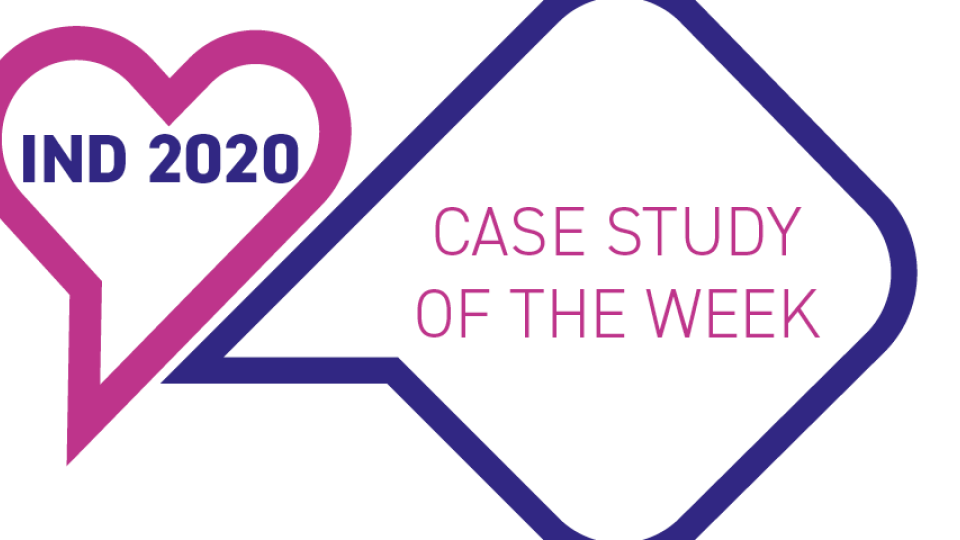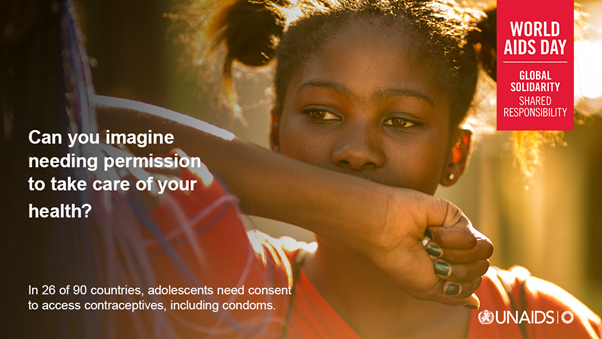International Nurses Day 2020: Case study of the week

World AIDS Day: Enhancing the competencies of Nurse/Midwife-led Pediatric and Adolescent HIV care and treatment
Contributor: Winnie Shena, Kenya

Kenya is one of the four HIV burden countries in Sub-Saharan Africa with an estimated 1.6 million people living with HIV compounded with a low coverage of antiretroviral therapy (ART). The high burden of HIV and AIDS in Kenya accounts for an estimated 29% of annual adult deaths, 20% of maternal mortality and 15% of under-five mortality. The epidemic has also had negative effects on the economy, lowering per capital output by 4.1%. 64% of adults and 65% of the children are on ART.
Like most countries, Kenya is experiencing a healthcare worker shortage, so there is a need to innovate around the existing workforce to ensure that the much-needed HIV services are achieved. Nurse-midwives are the most accessible frontline healthcare workers to vulnerable populations and have the adaptive capacity to provide integrated services to the population.
This project was rolled out in Homabay and Nairobi counties in order to enhance the competencies of nurse-midwives to provide paediatric and adolescent HIV care and treatment. The point-of-care HIV services provided by the nurse-midwives included: counselling for HIV testing across all cohorts; initiation of treatment protocol; provision of acute care services to those that are admitted and require closer nursing care; providing psychosocial support services to the guardians of orphaned children, discordant couples, HIV positive adolescents and their families; defaulter tracing; home visits; community mobilization; stigma prevention; and general promotion of healthy lifestyles and safe sexual practices.
In 2016- 2017, two facilities in Homabay and Nairobi counties were selected due to the high HIV burden. Homabay county has an HIV prevalence four and half times higher than the national average at 26%. 22% of the people living with HIV are aged 15-24 years and 6% are children under the age of 15 years. Nairobi county has an HIV prevalence comparable to the national average 14% of those living with HIV are young people and 5% are children under 15 years.
The nurses underwent an 18-week clinical mentorship programme using a prescribed national HIV modular training curriculum, which included theoretical knowledge, face to face interactive sessions with an onsite mentor, clinical placement and modular exams. Data was analysed using both descriptive and inferential statistics to determine the level of self-confidence and self-competence post intervention.
The overall self-confidence of the nurses significantly increased from 60.6% at baseline to 97.3%. Self-competence levels increased from 31.2% to 82%. Knowledge of HIV increased from 66.1% to 83.5.
The project also reduced morbidities and mortalities related to HIV and AIDS and reduced frequent admission to hospital due to opportunistic infections. Counselling and community mobilisation have reduced stigma and resulted in more disclosure among partners and families.
Clinical mentorship with a sustained relationship and a broad skills transfer is a key intervention that can significantly bridge the gap between knowledge and practice while increasing the confidence and competence of nurses in providing quality care in HIV setting. When mentorship is ingrained in a health system as a strategy to improve quality it can catalyse improvement process and strengthen clinical practice.
Mentoring within the practice environment provides an opportunity for the mentor to understand the unique challenges of the mentee’s environment and work towards a practical solution to achieve quality of care. Cluster mentoring - providing mentorship in a cluster or group - allows the mentee to understand their role within a multi-disciplinary team, clearly demonstrating each team member’s contribution to the overall success in quality of care of individual, families and communities.
The author acknowledges the following organisations for their contributions: CDC Kenya, PEPFAR, Nursing Council of Kenya, National Nurses Association Kenya and Jomo Kenyatta University of Agriculture and Technology (JKUAT).